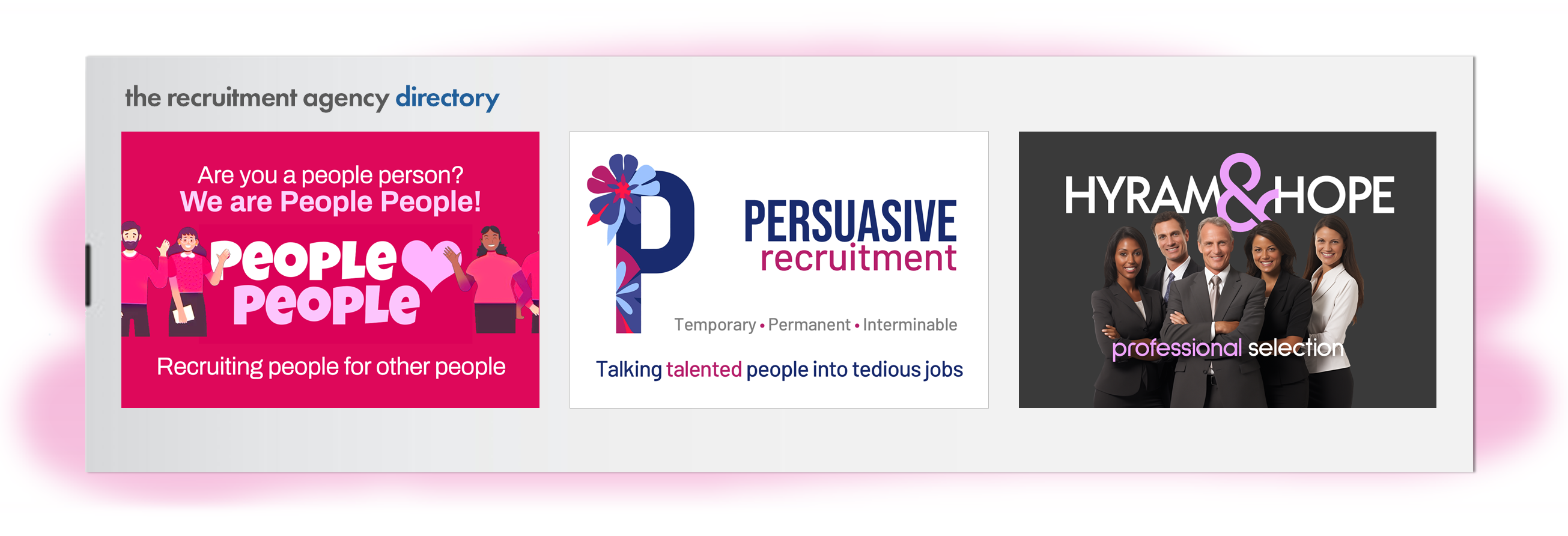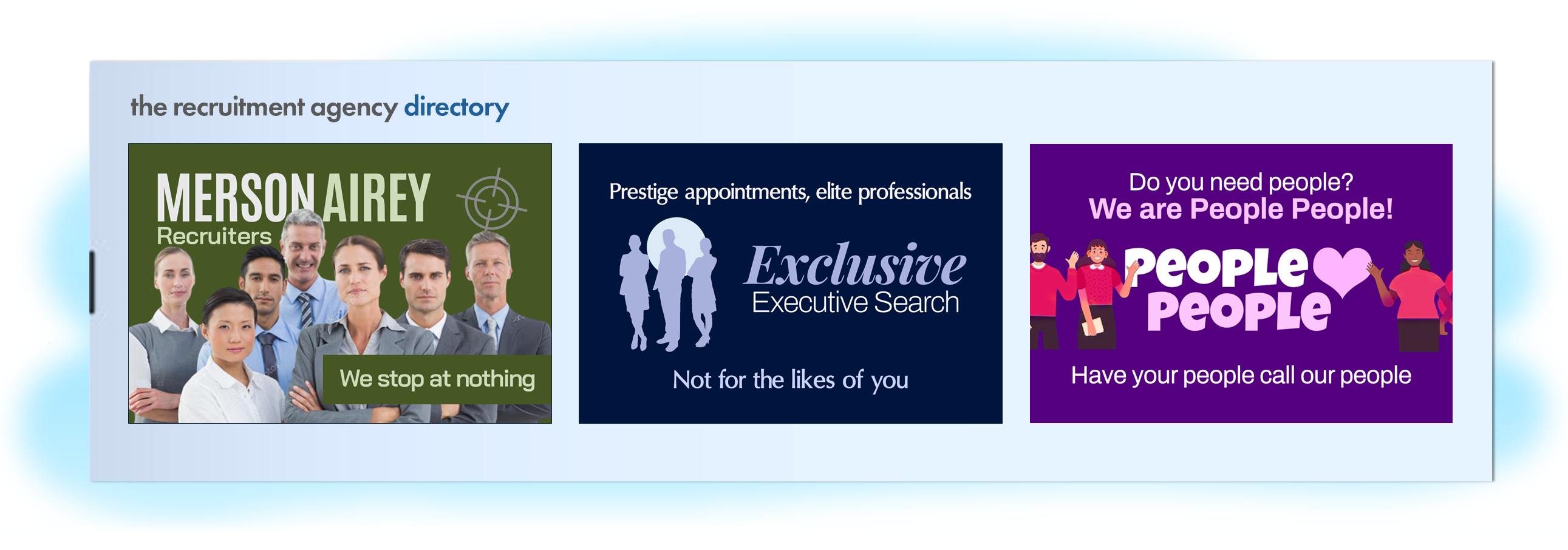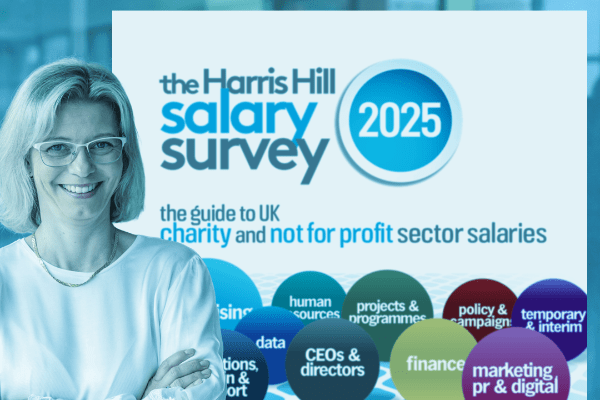In a world where you can advertise jobs and hold interviews from the comfort of your kitchen table, is there any benefit to bringing professional recruiters on board? We investigate, discover far too many, then whittle them down to...

Ten reasons you need a recruitment agency
Okay, ‘need’ is a strong word, but try getting ‘would benefit greatly from working with’ into a punchy headline.
If you’re looking for jobs, there’s little question: being with an agency gives you access to more opportunities, help and support with your search, and costs you precisely nothing, so it’s difficult to see a downside.
For an organisation looking to hire, however, it’s not quite that simple. Putting an agency on the case might be the easiest (and we’d argue, most effective) option, but in these belt-tightening times, couldn’t you get the same result and cut costs by doing it all yourself?
After all, if you're in a position to be hiring, you’re probably no stranger to the recruitment process. And unlike, say, performing heart surgery or directing air traffic, it seems like the kind of thing you could probably have a bash at without any specific training, and not risk imminent catastrophe.
Clearly, it's an option, but is it the most efficient one that will deliver the best outcome? Can you afford to spend the time, and what happens to your other projects in the meantime? And crucially, once all these things are factored in, will you actually save any money?
As a recruitment agency ourselves (full disclosure: that’s kind of our thing), you can probably guess where we stand on this, but there are very good reasons behind it. And if you're prepared to read on, strap in, because we're fully prepared to list them.
Let's do this.

1. Saving your time
It’s very easy to underestimate the time you’ll spend on a recruitment campaign, or to imagine you’ll be able to schedule it neatly around your existing projects without affecting them. That might initially be the case as you prepare the job description and advert, but once it’s posted, it’s anyone’s guess what you'll get, like sending a parcel through Yodel.
People will respond. Many will have questions. Some of them will even be about the job. There could be a deluge of applications that takes days to deal with, or almost nothing at all, sending you back to the drawing board. And if you do find promising candidates, you’ll need to move quickly before they’re snapped up elsewhere, which could throw out your schedule.
About the only certainty is that it’ll demand considerably more of your time than you expect. Brief it to an agency however, and all of this is off your shoulders. You’ll need to choose who to interview and do so, of course, but they’ll take care of all the sourcing, vetting and co-ordinating with candidates, leaving you free to get on with your work.

2. Keeping it legal
Regulation around the recruitment process is always evolving, concerning things like the right to work, data protection, discrimination by age/race/gender and so forth, so if you haven’t recruited for a while, what’s considered best practice has probably changed.
It’s a lot to keep up with if it’s not your everyday role, so if you’re at all uncertain, going through a reputable agency is a good way to quell your concerns. Or at least to make it their problem.

3. Market insight
Knowing your market is a big advantage when you need to find new talent, and even if it’s a field you often recruit in, you’ll struggle to know it better than a specialist consultant who does so all day, every day, for multiple organisations, all year round (bar the odd fortnight in Marbella).
Their up-to-the-minute insight can make all the difference when suitable candidates are scarce.

4. A broader reach
Advertising predominantly reaches those who are actively job-seeking, but in the charity sector, limited numbers usually mean you’ll also need those who aren’t. You might also want to reach a more diverse range of people than have applied for previous vacancies.
This is where a specialist agency can be invaluable, because they’ll know many of the right people already. For example in our case, having worked solely with the charity sector for almost 30 years, there’s a good chance we’ve placed them or at least had some interaction before. Even if we haven’t, we've got the resources, privileged access to LinkedIn, and a range of powerful proactive search tools to track them down.
It's less alarming than it sounds.

5. Better candidates
Recruiting directly means dealing with every application that comes in: the good, the bad and the wildly irrelevant, of which there tend to be quite a few. By contrast we use rigorous screening processes to ensure applicants meet the required qualifications, experience, and cultural fit, filtering out the unsuitable to ensure that you only see candidates who are worth your time to review.
You’d expect us to say that, of course, but while we can’t speak for our entire agency brethren, for us it’s simply a matter of logic: our goal is to fill the vacancy, and for you to be delighted and return, so it’s always in our interests (neatly aligned with yours here) to put forward the very best possible candidates.

6. Knowledgeable advice and support
To fill a position successfully, you need to see it in the context of the wider sector: how does it compare to similar roles elsewhere? Are there many people with the skills you need, and where are they likely to be? What would attract them to the role?
Working with an agency gives you a recruitment partner with that crucial external perspective: as sector specialists, for example, our consultants can offer deep insights into the job market, salary benchmarking and hiring trends. They'll also be happy to discuss recruitment strategy more broadly, and can offer an informed professional opinion on anything you’re unsure of, to help you make the best decisions.

7. Selling the opportunity
In our experience, hiring managers can often talk animatedly and at length about the job and the type of person they need, but when asked what they offer in return, everyone looks a little awkward and tumbleweeds roll by.
We're exaggerating slightly, but it's reflected in a lot of charity job descriptions, with lists of responsibilities and essential/desirable characteristics that far outweigh everything else. And it's notable how often, when asked what makes them a good employer, charities talk only about the benefits of their work to society, not the benefits of being a member of staff.
That gap is a real problem if you're trying to recruit, but fortunately, one that recruitment consultants are perfectly placed to fill, because finding the positives from a candidate perspective and generating interest with them is like breathing to these people.
It's what they do, and they're very good at it. I've been promised they'll release me now.
Here at Harris Hill (other agencies are, for now, available), we can also work with you to develop a strong employer brand that communicates your strengths as a place to work. And if you already have one, it needn’t be compromised by working with an agency. We can mirror your branding and processes to provide a candidate experience entirely consistent with your own, acting as ambassadors for your organisation.

8. Keeping it confidential
Conversely, while we’re all for openness and transparency, there are times when the brand needs to stay in the shadows; when it would be inappropriate, insensitive or simply unhelpful to tell the world you’re recruiting for a particular position.
That’s very difficult when recruiting directly, so agencies are the ideal solution for sensitive roles or situations requiring discretion, providing an anonymous and professional buffer during the recruitment process.

9. Flexibility
Hiring directly is one thing for permanent positions, but maintaining your own roster of available talent for temporary or contract roles is a very different proposition, and likely unfeasible for most organisations.
However, agencies are the obvious solution here too, as that’s exactly what many of them do. So in our case, for example, whether it’s for a week, for a year or forever (give or take), we’ll be able to adapt to your specific requirements.

10. Cost
‘Now hold on a minute...’, you're thinking, ‘...isn’t this the main reason not to use an agency?’
That's certainly what you'd see from the road, so to speak, but it’s worth going up for a closer look, because there are things you might not have considered that mitigate it quite significantly:
•Aside from the most senior executive roles, recruitment is generally on a contingency basis, where payment is contingent on a successful result. In short, that means you only pay if we succeed in filling the vacancy, and if not, there’s no charge. This arrangement makes it impossible to waste money on recruitment campaigns that don’t work, something that’s only too possible when running your own.
• Fees are agreed at the outset, and in our case at least, you won’t pay a penny more, even if the campaign proves far longer and more challenging than expected.
• There is no cost-free option. Doing everything yourself might seem cheaper on the surface, but it comes at the cost of your time, which itself is a cost to the organisation. And unlike an agency fee, nothing will stop it going up and up, the longer it takes to fill the position.
• There’s also the cost of advertising the role to consider. Recruitment agencies typically post far more jobs than a single organisation, so they tend to get much better rates from job boards. Most share the benefit of this, offering discounted advertising, but rumour has it there's even one super-generous agency, specialising in the charity sector, couple of ‘H’s in the name, who won't charge you for it at all. Chapeau! (whoever you are).

All told, it’s worth looking carefully at the numbers to see how your options really stack up. Ultimately, only you will know how the total cost of your time spent recruiting, your advertising spend, and the cost of delaying other work compares with an agency fee, but we’re willing to bet it’s a lot closer than you think.
In fact, you may well find that recruiting through an agency doesn’t just make financial sense, save time, make you better-looking and bring you lots of new friends (I may be embellishing a little), but delivers better outcomes in terms of candidate quality, choice, diversity, the candidate experience, and all the other factors we’ve outlined above.
Why not call one today?
David Young, Director of Marketing, and the team at Harris Hill
To find out more about how we can help your organisation to recruit, follow the links below to contact our consultants or read more about our services. You can also submit a job directly, or give us a call on 020 7820 7300. We'd be happy to help!
| |
Read more from the Harris Hill Blog ►

-

Opportunity for all
Find out how we’re working to deliver more diverse, equitable and inclusive recruitment…
-

Recruiting a charity CEO?
Our executive recruitment specialists have an exceptional record of successful CEO, chair, trustee and…
-

Charity sector salaries
Our 2025 Salary Survey has the latest rates and expert insight for roles throughout the sector.













